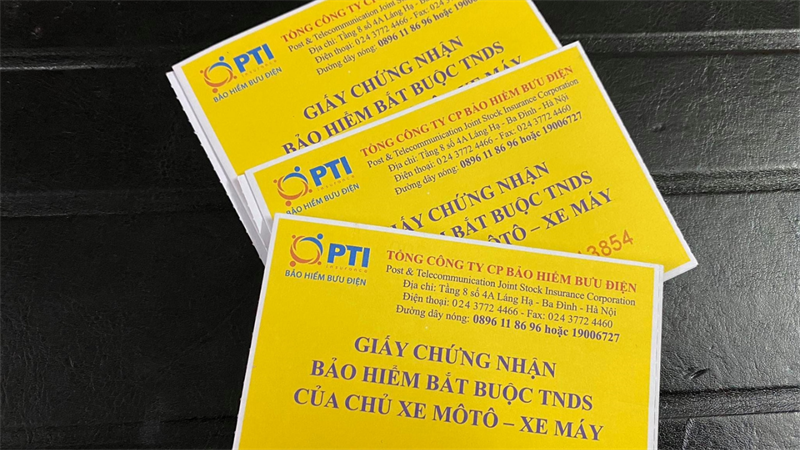Legality of the transaction of transferring land use rights without the certificate
1. Certificate of land use rights is a legal condition for transferring land use rights
According to Article 188(1)(a) of Land Law 2013, to transfer land use rights, the land users must satisfy the conditions for obtaining a Certificate. Certificate of land use rights is a legal certificate in which the State certifies the lawful land use rights and ownership of houses and land-attached assets of the person who has land use rights and ownership of houses and land-attached assets. However, in some cases, the validity of transferring of land use rights without a Certificate is accepted, specified as follows:
The cases of transfer prescribed in Article 186(3) and Article 168 of Land Law 2013. Whereby, in case of inheritance of land use rights, land users may exercise the rights of transferring when they are eligible to be granted a certificate. Besides, if all the heirs of land use rights are foreigners or overseas Vietnamese who are ineligible to own houses in Vietnam as prescribed in Article 186(1) of Land Law 2013, the heirs shall not be granted the certificate but may transfer or donate the inherited land use rights in accordance with the law.
Pursuant to Article 82(1) of Decree 43/2014/ND-CP amended and supplemented by Decree 01/2017/ND-CP), regarding transfers of land use rights before January 1st, 2008, the transfer is legitimate even though there is no legal paper on land use rights as provisions in Article 100 of Land Law 2013 and Article 18 of Decree 43/2014/ND-CP. Regarding transfer of land use rights from January 1st, 2008 to before July 1st, 2014, the transfer is only valid if there are papers on land use rights specified in Article 100 of the Land Law 2013 and Article 18 of Decree No. 43/2014/ND-CP
2. Legal consequences of transferring land use rights without a certificate
The transfer of land use rights without a certificate can lead to a number of legal risks as follows:
Firstly, the contracts of transferring land use rights may be null and void due to insufficient conditions for effective civil transactions. As an inevitable consequence of transferring without a certificate, the contracts can be refused to notarize and authenticate by the notary. On the other hand, according to Article 167(3)(a) of Land Law 2013, contracts on the transfer of land use rights must be notarized or certified, except in the case of real estate business in which one party or all parties involved in the transaction is/are a real estate business organization. Therefore, those transactions of transferring land use rights may be invalid since one condition for transferring land use rights does not meet and the formality of contracts violate Article 117 of Civil Code 2015. In this case, if the parties dispute and initiate a lawsuit at the Court, the Court may declare the contract invalid. The legal consequences are that the parties restore their original status and return to each other what they have received according to Article 131(2) of Civil Code 2015;
Secondly, due to the invalidity of transfer contracts, the land use right of the transferee is not certified by the State. Thus, the transferee cannot exercise the right to exchange, transfer, lease, sublease, inherit, donate or mortgage land use rights, contribute land use rights as capital.
Thirdly, the transferee may face difficulties when implementing construction, renovation and repair in cases requiring a Construction Permit. According to the provisions of Article 95(1)(b), 96(2), and 97(2) of Construction Law 2014, one of the documents included in the application dossier for a construction permit is a copy of one of the papers proving the land use right under Land Law.
Fourthly, the parties entering into contracts may be administratively sanctioned according to Article 18(3) of Decree 91/2019/ND-CP.
3. Some legal opinions on the validity of the transfer of land use right without a certificate
In practice, the transfer of land use rights without a certificate happens popularly. The trial practice shows that the courts have different opinions in determining legal grounds for declaring the invalidity of the land use right transfer contract without a certificate.
a. Contract of transferring land use rights without a certificate is null and void due to a violation of the regulations on the form
Case 1: In the cassation judgment No. 857/2011/DS-GDT dated November 16th, 2011, of the Supreme People’s Court, the panel of judges commented as follows: “It is incorrect when the Appellate Court considered that the land use right transfer contract between Ms. Hanh and Mr. Ha null and void due to a violation of the prohibition of the law... Although the transferer has not been granted a certificate and the contract has not been notarized or authenticated, there is only a violation of the order and procedures for transferring land use rights under the law”.
Case 2: At judgment no.86/2021/DSST dated November 18, 2021, the Court commented as follows:
- In 2006, Mr. Nguyen T T had yet to be issued a certificate of land use rights. However, he signed a contract to transfer land use rights to Mr. Nguyen H N. It violates the transfer conditions according to the law.
- At the time of establishing the transaction, Mr. Nam perceived that the competent authority had not yet certified the land use rights of Mr. T; however, he still agreed to enter into the transfer contract. Therefore, he had to suffer disadvantaged legal consequences.
- On the other hand, in terms of the form of the contract, it is found that the parties voluntarily agree to sign the transfer contract; both parties and witnesses sign the contract, but the contract is not notarized or authenticated.
- Up to now, the defendant (Mr.T) has not been granted a land use rights certificate; hence, continuing and performing the contract is impossible. Regarding the form of the transfer contract between the plaintiff and the defendant, it does not comply with the provisions of notarization or authentication; thus, it must be null and void.
In the above judgments, the Court decided that the transfer contracts between the plaintiff and the defendant were formally invalidated instead of a violation of the law’s prohibition.
b. Contract of transferring land use rights without a certificate is null and void due to a violation of the prohibition of the law
At Decision No. 171/2020/DS-GDT dated July 24th, 2020, the High People's Court in Ho Chi Minh City contended: “Both land use right transfer contracts signed in 2002 and 2009 violate the prohibition of the law, namely: the transferer is not certified land use right, the form of contracts is not notarized or authenticated. According to Article 132(3) of Civil Code 2015, the limitations period for requesting the court to declare the civil transaction invalid in this case is not limited”.
Based on Article 132(3) of Civil Code 2015, the High People's Court in Ho Chi Minh City assumed that the statute of limitations for claiming the contract to be void is not restricted. Article 123 of the 2015 Civil Code stipulates: “Civil transactions with objectives and contents which breach legal prohibitions or which contravene social ethics shall be invalid"; therefore, it can be understood that the High People's Court in Ho Chi Minh City determined that transferring land use rights without a certificate violates the law's prohibition.
Conclusion: From the above judgments and decisions, there is no consensus among the Courts in determining legal grounds for the invalidity of the transfer of land use rights without a certificate. In the writer's opinion, according to Article 123 of Civil Code 2015: "Legal prohibitions mean provisions of law which do not permit entities to perform certain acts"; Article 12(4) of Land Law 2013 about prohibited acts: "Failure to comply with the provisions of law when exercising the rights of land users," it can conclude that the transfer of land use rights without a certificate is subject to prohibited acts specified in Land Law 2013. As such, the transfer of land use rights can be determined to violate the law's prohibition as prescribed in Article 122 and Article 117(1)(c) of Civil Code 2015.













